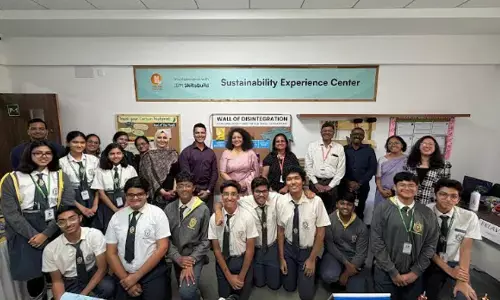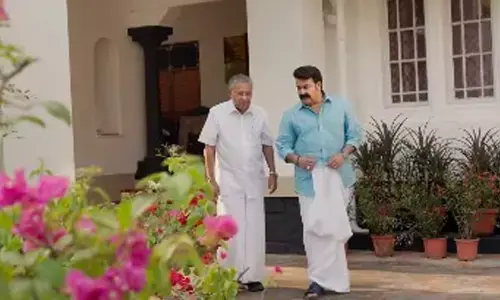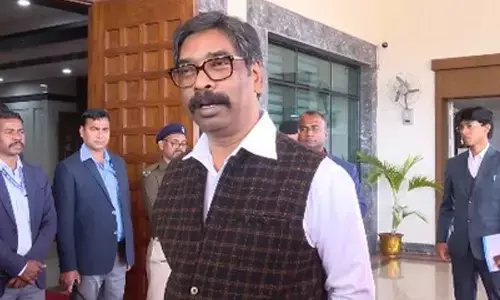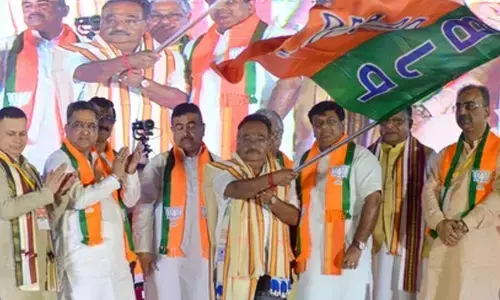Is poverty a state of mind?

S Madhusudhana Rao - Tongue in Cheek - Congress Vice-President Rahul Gandhi has elevated himself to a higher level of thinking with his recent remark that “poverty is a state of mind.” Speaking at a seminar on “Culture, Deepening Democracy and Most Marginalized Communities” organized by social scientist Badri Narayan in Allahabad on Monday last, the Gandhi scion is reported to have said: “Poverty is just a state of mind. It does not mean the scarcity of food, money or material things. If one possesses self-confidence, then one can overcome poverty.”
Congress Vice-President Rahul Gandhi has elevated himself to a higher level of thinking with his recent remark that “poverty is a state of mind.” Speaking at a seminar on “Culture, Deepening Democracy and Most Marginalized Communities” organized by social scientist Badri Narayan in Allahabad on Monday last, the Gandhi scion is reported to have said: “Poverty is just a state of mind. It does not mean the scarcity of food, money or material things. If one possesses self-confidence, then one can overcome poverty.”
Rahul’s observation reminds me of a famous line in John Milton’s epic poem Paradise Lost, “The mind is its own place, and in itself can make a heaven of hell, a hell of heaven…” There are many interpretations, from sane to psycho-analytical, but the most accepted is the one that deals with the simplistic truth of how we perceive things and adjust ourselves to the environment, circumstances, conditions, etc.
Metaphysically speaking, from sages to scientists, the learned see the mind as the nerve centre for all our actions, thoughts, imagination, creativity, innovation, etc. Its overriding influence on the physical nature of human existence can’t be overlooked. There has been an eternal quest for unraveling the secrets of human brain/mind for thousands of years. If ancient philosophers tried to interpret the functioning of mind in a spiritual way, modern scientists look at it as the complex neuron functioning. However, neither has come out with satisfactory postulates that answer all the questions being raised from time to time. It is more so with the problems people face in a materialistic world where the needs and wants keep piling up and go on interchanging from one geographical region to another region.
One of the most discussed at country level and debated at international forums is poverty, its parameters and how to remove the scourge. An extension of it is the rich-poor gap at individual level and haves and have-nots on global scale. That is, personal and national levels of poverty vis-à-vis others.
For instance, Americans feel poor without a car whereas for a majority of Indians it is a luxury. (With rising fuel prices, many owners of four-wheelers too feel the same thing). Similarly, housing, clothing, schooling and every other aspect of life. One can say it’s a matter of degree of comparison if one leaves aside the basic needs such as food, clothes and a roof over head that set poverty standards. One could indulge in an endless debate about what constitutes below poverty line and above poverty line whose yardsticks keep changing in our country. One can’t just wish the poverty level away by applying certain contentious parameters.
If we look at these standards, by our own or set by international bodies, and reinterpret them in terms of affordability, safely we can say that some people can afford certain things whereas others can’t because what they earn is not enough to purchase what they wish to have. In such cases they can’t term themselves poor just because they are unable to stock their homes with expensive things.
When this logic is applied to what Rahul Gandhi had said that poverty was a state of mind, despite being surrounded by all materialistic things, his observation is justified. But the catch is how a poor man can see poverty with the ‘state of mind’ Rahul has, er, in mind. Can anybody, political leaders the least, philosophize about penury to hutment dwellers and exhort them to make a palace of their shanty and live like a maharajah in their approach to life and living standards?
In other words, if one is contented with what one has, probably, one won’t see any trace of poverty. Or, one has to follow Bhutan’s concept of Gross National Happiness (GNH) instead of Gross Domestic Product (GDP). That is, the quality of life is measured in more holistic and psychological terms than by economic indicators like industrial output, farm produce, etc. If one is happy, irrespective of the food one eats, clothes one wears and house one lives in, he/she can be described as one at peace with oneself.
His/her GNH quotient will be high and the person does not feel the poverty pinch as the state of mind will be in perfect harmony with everything that surrounds her/him. It is really bliss, both for the person and the government. Because there won’t be any demands for good roads, electricity, potable water, livable houses, etc, since everything that represents the physical world can be viewed with a certain amount of impassiveness. One can even take refuge in the Karma theory and apply it to the ‘state of mind’ for self-gratification. The government can promote Rahul’s statement as the Congress mantra for poverty alleviation and ultimately eradication. After all, it’s all in mind, whether it is a myth or reality.
S Madhusudhana Rao











